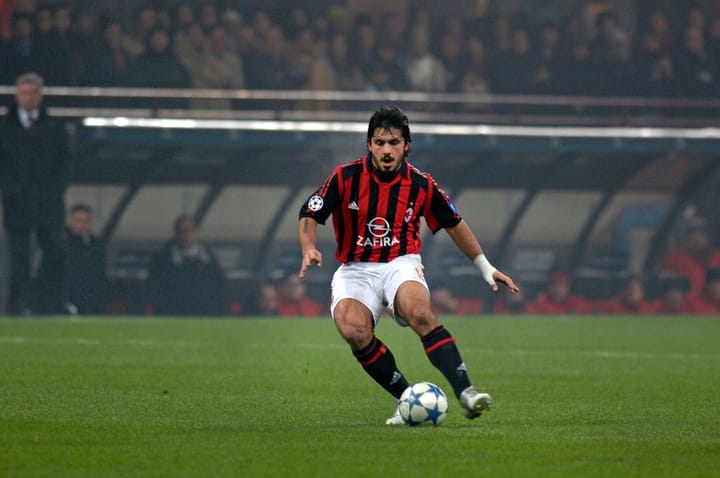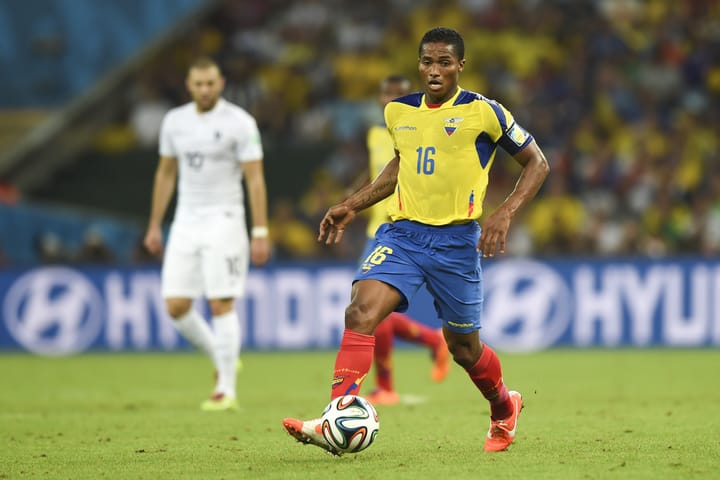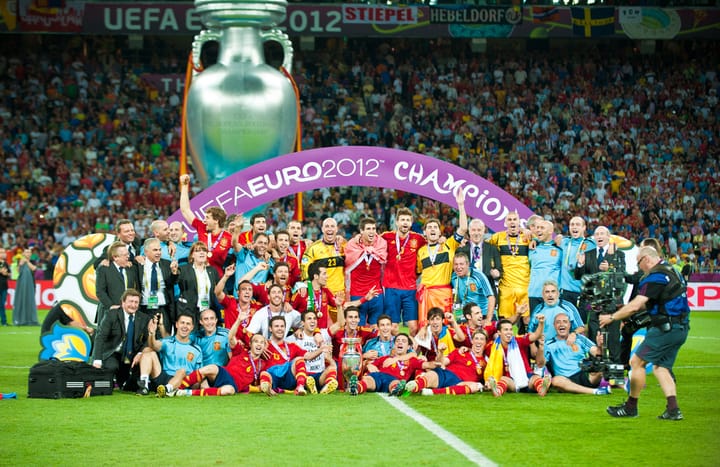Lothar Matthäus, the epitome of German soccer
German soccer players believe in themselves. And mostly, they think they are better than their competitors. Sometimes they shout it out loud. Well, at least Lothar Matthäus did. The record international never minced words.

They are snobbish, pretentious, and pompous. They are Germans. They believe in themselves. And mostly, they think they are better than their competitors. Sometimes they even shout it out loud. Well, at least Lothar Matthäus did. The most complete soccer player in history never minced words.
Matthäus is the most capped German player ever, retiring with 150 appearances (83 for West Germany) in 20 years and 23 goals. Matthäus is one of Pelé's top 100 soccer players, and Diego Maradona said of him, "he is the best rival I've ever had. I guess that defines him pretty adequate."
On the pitch, Lothar Matthäus could act jerkish. He didn't shy away from clashes and inspired his teammates ferociously. He shocked fellow players with words and kept them on their toes when something went wrong. Players love to work for a devout type like der Lothar. "He always gives himself 100 percent. I have a lot of respect for him," said national coach Berti Vogts during the fifth and last world championship (1998, France) that Matthäus played. "His enthusiasm is an example for all of us."
Controversy
Matthäus' commitment has led to controversy over time. On the field and off. USA '94 was expected to be his last tournament, though he did not officially retire from international play. Matthäus was afterward not called up for the national team due to a feud with captain Jürgen Klinsmann and coach Berti Vogts. In his absence, Germany won UEFA Euro 1996, which was held in England.
It all began when Matthaus made a bet with the club's general manager that Klinsmann would not score more than 15 goals. Matthäus made it worse by stating, "A real striker scores more than 15 goals a season." And as harsh as the attack may seem, it had a grain of truth.
At Bayern Munich, however, Lothar still played like a star. And when Matthias Sammer dropped out injured, Vogts and Klinsmann stroked their hand over their hearts. In 1998 Lothar returned as an international, provided he kept his big mouth shut.
Things went well until talk show host Harald Schmidt dropped a bombshell on the selection that would rip open old wounds. At the fancy hotel Mas d'Artigny, part of the selection sat in front of the TV screen as 'Dirty Harry' held a framed portrait photo of Matthäus in front of the camera. Schmidt claimed to have confiscated the international's secret diary and reads passages in which Klinsmann was this time portrayed as a Schwabenschwuchtel, a sissy, one that only takes hot showers. The squad was stunned. Matthäus sweared it's bullshit. He kept no diary and stated he had no contact with Schmidt or his editors.
Razor-sharp razor
"I am a non-problematic person," he said when I met him days later in a little tunnel near the Germans' training complex in Nice.
"Mr. J. Klinsmann might think differently about that," I suspected.
"Jürgen likes me," Matthäus replied.
Time is a great healer. Even though Vogts had forbidden him to contact the press, Matthäus told me to come to the tunnel near the training complex on Friday. "There, we can talk undisturbed."
Honestly, I didn't expect Lothar to be there. But he had been standing there for some time, fidgeting impatiently, when I approached.
The meet-up turned into a pleasant conversation in which Matthäus elaborated on his character and winner's mentality. At the time he played, Lothar was the face of his generation. He played fearlessly and fought, box-to-box, until he dropped. You had to ping him three times before he was out. He ran until the last second and let the referee set the acceptable limits.
Many opponents disliked him because he outplayed them nine times out of ten. Hans van Breukelen, the goalkeeper of the Dutch national team, could drink his blood. He thought Matthäus was a bully and let him know it during an international match. As Lothar lay on the ground, the hot-tempered goalkeeper shouted, "Ich hoffe das du sterbst." (I hope you die). The message got through, but grammatically there were some flaws. It should have been "stirbst. ;-)
The criticism doesn't affect Matthäus. That he might invent the Schwalbe makes him laugh. "Referees decide," he says. He is more taken with the praise of Maradona, one of the best players ever. "Perhaps the very best." When Napoli played Inter Milan (or Argentina, Germany), Diego and Lothar were often diametrically opposed. Diego usually experienced a nasty afternoon. That he was the most challenging opponent for Maradona, Matthäus carries in his heart forever. "It is an honorable qualification, don't you think?"
On Nov. 10, 2001, three years after his last game for Boca Juniors, Maradona played a farewell match in a packed La Bombonera. Maradona had invited all his soccer friends to a match between Argentina and the "Rest of the World XI. In addition to Eric Cantona, Davor Šuker, Rene Higuita, Carlos Valderrama, and Hristo Stoichkov, Lothar Matthäus was also there. It was a sign of friendship and respect. "I am a non-problematic person," Matthäus insisted. On the field, he only does things that make people nervous. Verbally, he is highly skilled. Lothar is direct and vicious in his comments. Even off the field, this regularly leads to problems.
Matthäus once joined the Al Jazeera channel as an analyst during a Champions League game in Munich. Just before halftime, Lothar got into a fight with his fellow analysts. "Am I sacrificing my evening for this shit?" he shouted. "Do you think I'm a plaything? I'm not a child!" The outrage was not meant to be seen, but before Al Jazeera knew it, the rant went viral on the Internet.
Matthäus' words compare well with a razor-sharp razor.
Hot or cold shower?
Mr. Matthäus, do you shower with hot or cold water? I asked him, in the tunnel in Nice.
Der Lothar grinned, squeezed his eyes together, and bent his head toward me so much that our noses were thirty centimeters apart. He was unshaven but well-suited. His eyes began to spy, and his grin did not cease. "With hot water," he whispered. "Like most people."
Matthäus had no desire to fuss in 1998. He immediately distanced himself from Harald Schmidt's claim that he had leaked secret notes. "I haven't taken that man seriously for years, so why should I now?" said Matthäus. To avoid bipartisanship, The German Football Association (DFB) imposed a speaking ban on Lothar to be on the safe side.
"Antipathy I meet stronger than anyone else," he confided, ignoring the speaking ban in the tunnel. "No joke. I am popular because I don't give up and lead the way. People respect me because of my commitment and maybe even my age. Still, they don't find me sympathetic. Not abroad, not in Germany. But hey, did you see that banner during that match against the United States? I like Matthäus, it said. So they are already starting to like me better. Rightly so, because I'm a nice guy."
The stereotyping in the press has long bothered him. "Reporters are very conventional; that's the way it is, and that's the way it will stay. But people change. So did I. As my career progressed, I became calmer. I learned to settle into my role."
His fiery behavior is contagious.
In 1998, he started the World Cup as a reserve. For the first time, he watched an international from the bench. "But if the coach calls on me, I will be there and give everything I have," he said. After 45 minutes of Germany-United States, Matthäus stood as the only reserve waiting for the main squad. He handed out his supply of inspirational and motivational tricks. Tap on the buttock, and pat on the shoulder. Captain Klinsmann is the last to enter the field. Matthaus stalked toward him and gave him such a neck pat that I could hear it in the Parc des Princes stadium stands. PATS! Klinsmann's head shook back and forth. Thirty minutes later, the German attacking leader put the ball dead in front of his right foot with his chest: 2-0. Matthäus jumped up from the bench and applauded at length. "Dass war ja elegant wie er dass hat gemacht." Lothar's fire is contagious.
During the training sessions in France, he is remarkably upbeat. He coaches younger players and motivates them to play passionately. He runs holes and sends decisive passes, which present coach Vogts with a dilemma. Being there is no longer enough for Matthäus. He wants to play.
"Lothar has a hard time holding back, yet he is non-problematic. Just a little fiery, now and then."
For three weeks, he behaved like an observer, a detective. Since the day the German selection met in Helsinki, Finland, he has not skipped a training session. His eyes and ears bagged every situation. Olaf Thon gives the libero role an offensive character. At Schalke 04, Thon learned to operate in front of the defense. Matthäus is still old school. He prefers to watch his man-markers from the back but also likes to be tempted by a solid dribble across the field's axis. Nor is he opposed to splitting passes over sixty meters.
In the match against Iran, Matthäus came into the arena, and he did not relinquish his spot in the main squad. National coach Berti Vogts was very clear about his choice of the 37-year-old Matthäus: "It is staggering, but there are simply no younger alternatives." Matthäus is harder than Thon, more direct and shrewd. Together with Andy Möller, he is the champion of feigned dropping. At the slightest, Matthäus begged for a yellow card for the opponent. He tackled and brutalized anyone in his path. "You can't hold me responsible for a referee's decision," is his opinion. Another story is that he liked to stretch the limits of what was allowed.
Ups and downs
Matthäus' World Cup career ended in the quarterfinals when Germany lost hopelessly to Croatia (0-3). He would have preferred to wave goodbye playing the final, but it is what it was.
"I am extremely proud to have been able to participate in a World Cup for the fifth time," he said.
He has played three World Cup finals in a row.
The first one he lost 3-1 to Italy in 1982.
The second he lost 3-2 to Argentina in 1986.
The third, he won 1-0 against Argentina in Germany and reached the quarterfinals at 90.
At the 1994 Worfinals - just like in 1998.
His career in that regard has been one of ups and downs. He was named the first FIFA World Player of the Year, and remains the only German to have received the award. He was also included in the Ballon d'Or Dream Team in 2020. However, he never won a European Cup but did play the sensational Champions League final at Camp Nou against Manchester United with Bayern Munich in 1999. Matthäus was substituted in the 86th minute when Bayern led 1-0. After his substitution, things went wrong, and United scored twice. "Tough to swallow the loss."
Matthäus played at four European Championships (1980, 1984, 1988, 2000), winning the first.
He retired in 2000 with 150 international matches, 23 goals, and five (yellow) cards on the counter.
"I am proud of what I have achieved. I had many injuries and had to fight back many times. My dream now is to stay healthy and be able to do what I want. They say I've made myself immortal as a footballer, but that's bullshit. I will die no matter what. At most, I will be a more famous dead than most people. Who am I? I am Lothar Matthäus. A man who set himself a goal and did everything in his power to achieve it. He has never hidden on the field, nor will he hide out there. He is adventurous, assertive, and ambitious. He wore the captain's armband of the German team with the utmost pride and led the way. He keeps committed and will say what he thinks, regardless of the consequences. He is aware of the fact that people have problems with that. He doesn't always think before he speaks. Lothar has a hard time holding back, yet he is non-problematic. Just a little fiery, now and then."




